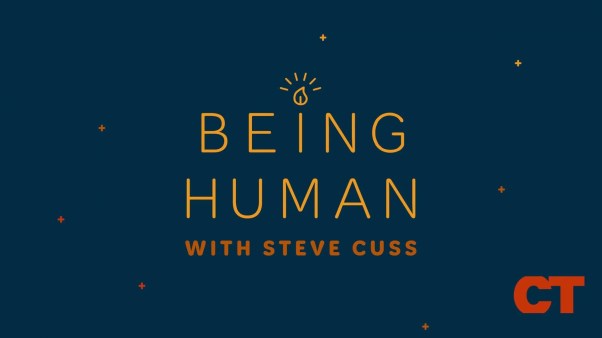It’s worth remembering that Augustine was “weeping, with agonizing anguish in [his] heart” over his inability to control himself before he read Romans 13:13–14.
We tend to think that Scripture usually works the other direction. We read seeking instruction, wisdom, or intimacy and then read a challenging word like Paul’s that prompts contrition: “Let us behave decently, as in the daytime, not in carousing and drunkenness, not in sexual immorality and debauchery, not in dissension and jealousy. Rather, clothe yourselves with the Lord Jesus Christ, and do not think about how to gratify the desires of the flesh.” We’re convicted by Scripture, then we repent.
But in Augustine’s archetypal testimony, Confessions, that’s not what happened. First he was in anguish, then he heard a child chanting, “Pick it up! Read it! Pick it up! Read it!” He wrote (in Sarah Ruden’s 2017 translation) that when he obeyed the voice and read Paul’s words, “I didn’t want to read further, and there was no need. The instant I finished this sentence, my heart was virtually flooded with a light of relief and certitude, and all the darkness of my hesitation scattered away.” His response was not to wallow or to regret how long it took him to repent. Instead, he immediately and joyfully told his friend Alypius and his mother what had happened.
Many times the Holy Spirit really does use Scripture to illuminate our sin and to make us deeply uncomfortable. It is, after all, “useful for teaching, rebuking, correcting, and training in righteousness” (2 Tim. 3:16). And “no discipline seems pleasant at the time, but painful” (Heb. 12:11). Nevertheless, my experience with reading supernaturally convicting passages of Scripture tends to look like Augustine’s “light of relief and certitude.” It’s only when I’ve been away from Scripture for a while that I start thinking of it as a text where I will encounter discomfort and “agonizing anguish.” Ironically, guilt over not reading the Bible is more uncomfortable than those moments when a challenging passage seems particularly apt.
Tempted and tired
The Christian leader’s temptations against Bible reading can differ significantly from the young believer’s. Many of us have been around Scripture long enough not to feel too intimidated by its size or in picking something to read. But we are likely to get distracted or to feel like we already know what’s in our Bible. It can be especially hard to read afresh a passage one has memorized, to remain curious about a story you’ve deeply studied or repeatedly preached on. So Bible reading loses its urgency: Why read the Bible right now when there are so many interesting new books relating the Bible to the issues of the day?
Christian leaders are also too aware of the dangers of bad Bible reading. We’re on alert against proof-texting. We fret about people misappropriating promises to Israel as guarantees of their own health, wealth, and safety. And we know that the Scriptures were written to believers for the life of the community, not for individualistic moments of personal piety. We start to wonder: Doesn’t the idea of reading one little chapter this morning encourage an atomized “thought of the day” when the whole point is the one large story it tells about God in Jesus Christ? Yes! And since I already know that story, do I really need to read a bit from 1 Corinthians again this morning? There’s so much else that needs doing!
Those thoughts and temptations have little purchase when I’m actually reading the Bible. It’s not that reading it always (or usually) floods me with a light of relief and certitude. But I’ve found that I’m hungriest to read Scripture when I’m reading Scripture. Part of this, no doubt, is simply the psychology driving any habit. But part of it is that the Word of God really is alive and active (Heb. 4:12)—and as much as I want to affirm its primary aims for the community of God, the Spirit keeps illuminating those ways in which it has something to say to me, personally, right now. As Søren Kierkegaard repeatedly argued, the Bible is more like a love letter than our commentaries and sermons might suggest. “It is I to whom it is speaking; It is I about whom it is speaking,” he wrote. Elsewhere, the Danish philosopher reminds that the God who gave his Word as a gift is he who is “promptly at hand” as we show even the slightest interest in reading it. And it’s him again eager to help us when we strive to act according to it. It is him singing in the garden, “Pick it up! Read it!” Scatter the darkness of your hesitation and read it.
Ted Olsen is editorial director of Christianity Today.









